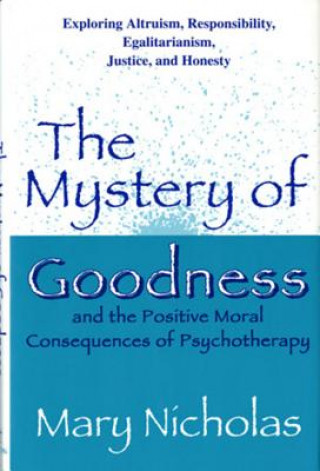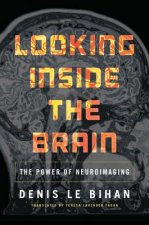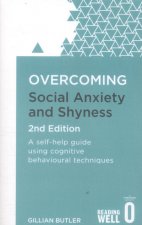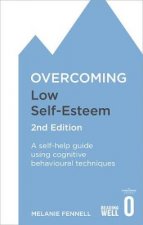
Kód: 04877213
Mystery of Goodness and the Positive Moral Consequences of Psychotherapy
Autor Mary W. Nicholas
In a society that oscillates wildly between extremes of moralizing and corruption, how do we define, much less foster, "goodness"? Mary Nicholas, in this engaging and provocative book, explores the relationship between psychothera ... celý popis
- Jazyk:
 Angličtina
Angličtina - Vazba: Pevná
- Počet stran: 384
Nakladatelství: WW Norton & Co, 1994
- Více informací o knize

992 Kč
Dostupnost:
50 % šance Máme informaci, že by titul mohl být dostupný. Na základě vaší objednávky se ho pokusíme do 6 týdnů zajistit.
Máme informaci, že by titul mohl být dostupný. Na základě vaší objednávky se ho pokusíme do 6 týdnů zajistit.Prohledáme celý svět
Mohlo by se vám také líbit
-

Landowners, Capitalists, and Entrepreneurs
1755 Kč -

Carbonates in Continental Settings
4278 Kč -

Looking Inside the Brain
1105 Kč -

400 Kilometres
469 Kč -

Intuitive Advisor
486 Kč -

Roger Smalley: A Case Study of Late Twentieth-Century Composition
6077 Kč -

Innovative Teaching and Learning in Primary Schools
4679 Kč
Dárkový poukaz: Radost zaručena
- Darujte poukaz v libovolné hodnotě a my se postaráme o zbytek.
- Poukaz se vztahuje na celou naši nabídku.
- Elektronický poukaz vytisknete z e-mailu a můžete ihned darovat.
- Platnost poukazu je 12 měsíců od data vystavení.
Informovat o naskladnění knihy
Zadejte do formuláře e-mailovou adresu a jakmile knihu naskladníme, zašleme vám o tom zprávu. Pohlídáme vše za vás.
Více informací o knize Mystery of Goodness and the Positive Moral Consequences of Psychotherapy
Nákupem získáte 99 bodů
 Anotace knihy
Anotace knihy
In a society that oscillates wildly between extremes of moralizing and corruption, how do we define, much less foster, "goodness"? Mary Nicholas, in this engaging and provocative book, explores the relationship between psychotherapy and the enhancement of goodness. She examines the field of psychotherapy, which frequently strives for moral neutrality, and explains how neglecting morality can actually stymie its goals. Goodness is defined here as concern for others and is represented by five generally accepted "virtues" - altruism, responsibility, justice, egalitarianism, and honesty. The process of psychotherapy is examined in light of how it may promote or diminish these attributes in patients. The first section, "Reconciling Goodness with Psychology and Psychotherapy, " conceptualizes goodness in psychological terms. Section Two, "The History of Goodness, " synthesizes various theories pertaining to goodness from the perepectives of science, developmental psychology, behavioral and social psychology, and psychoanalysis. The third section, "From Demoralization to Remoralization through Psychotherapy, " discusses the moral aspects of different mental and emotional illnesses and their treatment. The book explores not only the morality of clients, but also the moral role of the therapist and how this is shaped by specific biases toward amorality, which are inherent in Western culture and science. Nicholas believes that therapy can have positive moral results, from loving more and better to the search for truth and the pursuit of life over death, as well as mutuality in personal relationships and the larger community. Each chapter contains lively clinical anecdotes from individual, couples, and group therapy to illustrate the points made. Attention is paid throughout the book to how moral issues can be addressed in therapy without shaming the client.
 Parametry knihy
Parametry knihy
Zařazení knihy Knihy v angličtině Medicine Other branches of medicine Clinical psychology
992 Kč
- Plný název: Mystery of Goodness and the Positive Moral Consequences of Psychotherapy
- Autor: Mary W. Nicholas
- Jazyk:
 Angličtina
Angličtina - Vazba: Pevná
- Počet stran: 384
- EAN: 9780393701661
- ISBN: 0393701662
- ID: 04877213
- Nakladatelství: WW Norton & Co
- Hmotnost: 560 g
- Rozměry: 244 × 163 × 25 mm
- Datum vydání: 17. January 1994
Oblíbené z jiného soudku
-

Overcoming Social Anxiety and Shyness, 2nd Edition
357 Kč -

Body Process
1230 Kč -

Introduction to Equine Assisted Psychotherapy
772 Kč -

Myth of Self-esteem
472 Kč -

DBT Skills Training Handouts and Worksheets
1213 Kč -

Healing the Fragmented Selves of Trauma Survivors
1161 Kč -

Schema Therapy Clinician's Guide - A Complete Resource for Building and Delivering Individual, Group & Integrated Schema Mode Treatment Programs
1327 Kč -

Dancing in the Flames
515 Kč -

Get Out Of Your Mind And Into Your Life
495 Kč -

Eye Movement Desensitization and Reprocessing (EMDR) Therapy
2097 Kč -

Animal-Assisted Psychotherapy
828 Kč -

Attachment Disturbances in Adults
1641 Kč -

Addiction to Perfection
517 Kč -

Sensorimotor Psychotherapy
1543 Kč -

Gift Of Therapy
357 Kč -

On Becoming a Person
357 Kč -

EMDR
556 Kč -

Carl Rogers on Personal Power
410 Kč -

Schema Therapy for Borderline Personality Disorder , Second Edition
1090 Kč -

Overcoming Perfectionism 2nd Edition
357 Kč -

DBT Solution for Emotional Eating
427 Kč -

Contextual Schema Therapy
1402 Kč -

Healing Relational Trauma with Attachment-Focused Interventions
1143 Kč -

Polyvagal Theory in Therapy
840 Kč -

Overcoming Low Self-Esteem, 2nd Edition
357 Kč -

Handbook of Gestalt Play Therapy
1064 Kč -

Trauma Therapy and Clinical Practice: Neuroscience, Gestalt and the Body
1203 Kč -

On Becoming a Person
360 Kč -

Cognitive Behavioural Therapy Workbook For Dummies 2e
681 Kč -

Neurofeedback in the Treatment of Developmental Trauma
1244 Kč -

Schema Therapy with Couples
1499 Kč -

Psychotherapy and the Highly Sensitive Person
1404 Kč -

Art Therapy Techniques and Applications
870 Kč -

Cognitive Therapy for Challenging Problems
1057 Kč -

Character Strengths Intervention Cards
768 Kč -

Borderline Bodies
1270 Kč -

Compassion Focused Therapy
673 Kč -

Cognitive-Behavioral Treatment of Perfectionism
1083 Kč -

In and Out of the Garbage Pail
897 Kč -

Intimacy from the Inside Out
1230 Kč -

Overcoming Destructive Beliefs
788 Kč -

8 Keys to Brain-Body Balance
541 Kč -

Mental Disorders & Spiritual Healing
466 Kč -

Treatment Plans and Interventions for Depression and Anxiety Disorders
2256 Kč -

Cognitive Behavioural Therapy for Problem Drinking
1544 Kč -

Overcoming Grief 2nd Edition
357 Kč -

Values Clarification in Counseling and Psychotherapy
2054 Kč -

Working with Relational and Developmental Trauma in Children and Adolescents
1705 Kč -

Working with Children to Heal Interpersonal Trauma
1057 Kč
Osobní odběr Praha, Brno a 12903 dalších
Copyright ©2008-24 nejlevnejsi-knihy.cz Všechna práva vyhrazenaSoukromíCookies


 Vrácení do měsíce
Vrácení do měsíce 571 999 099 (8-15.30h)
571 999 099 (8-15.30h)